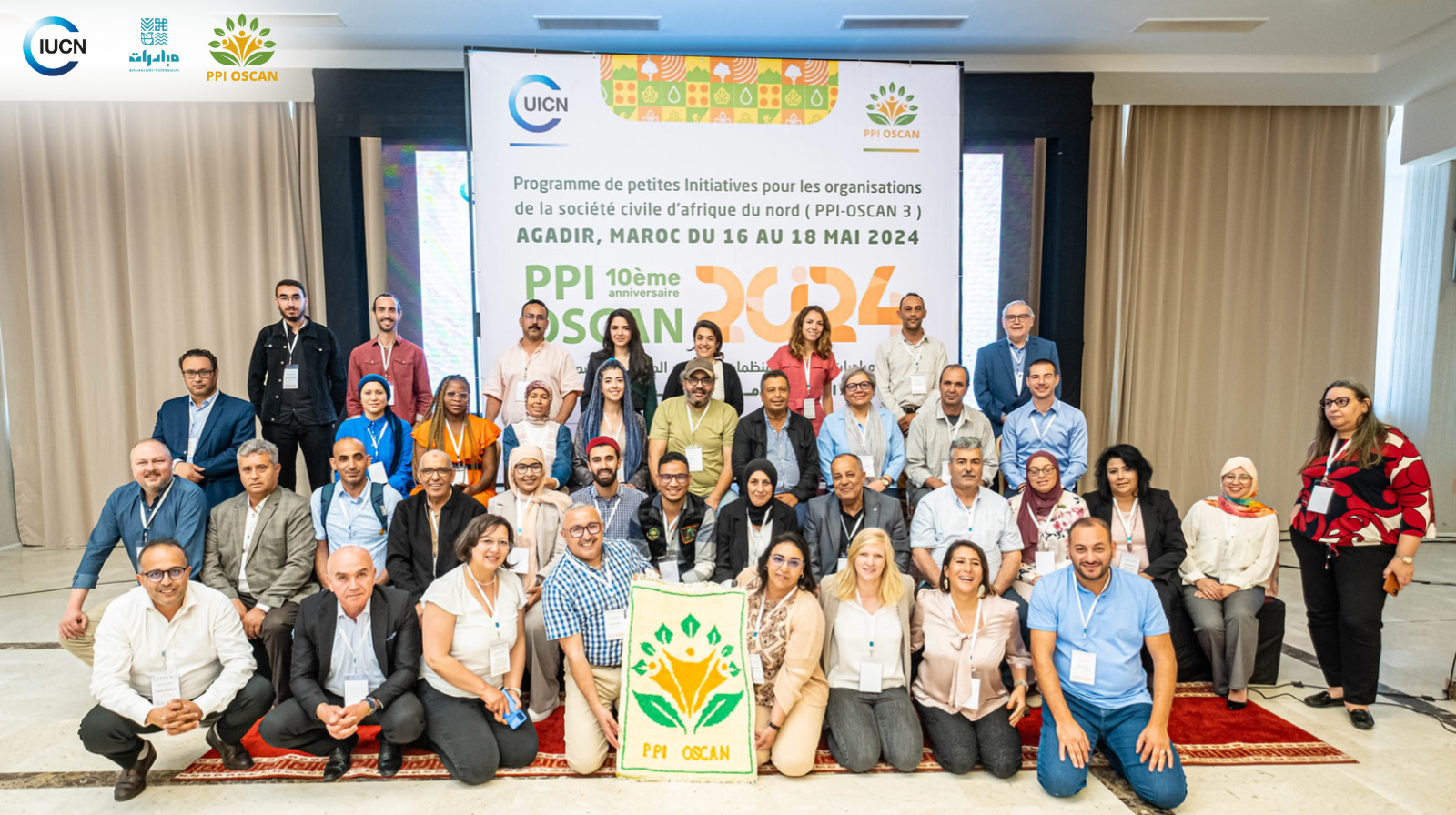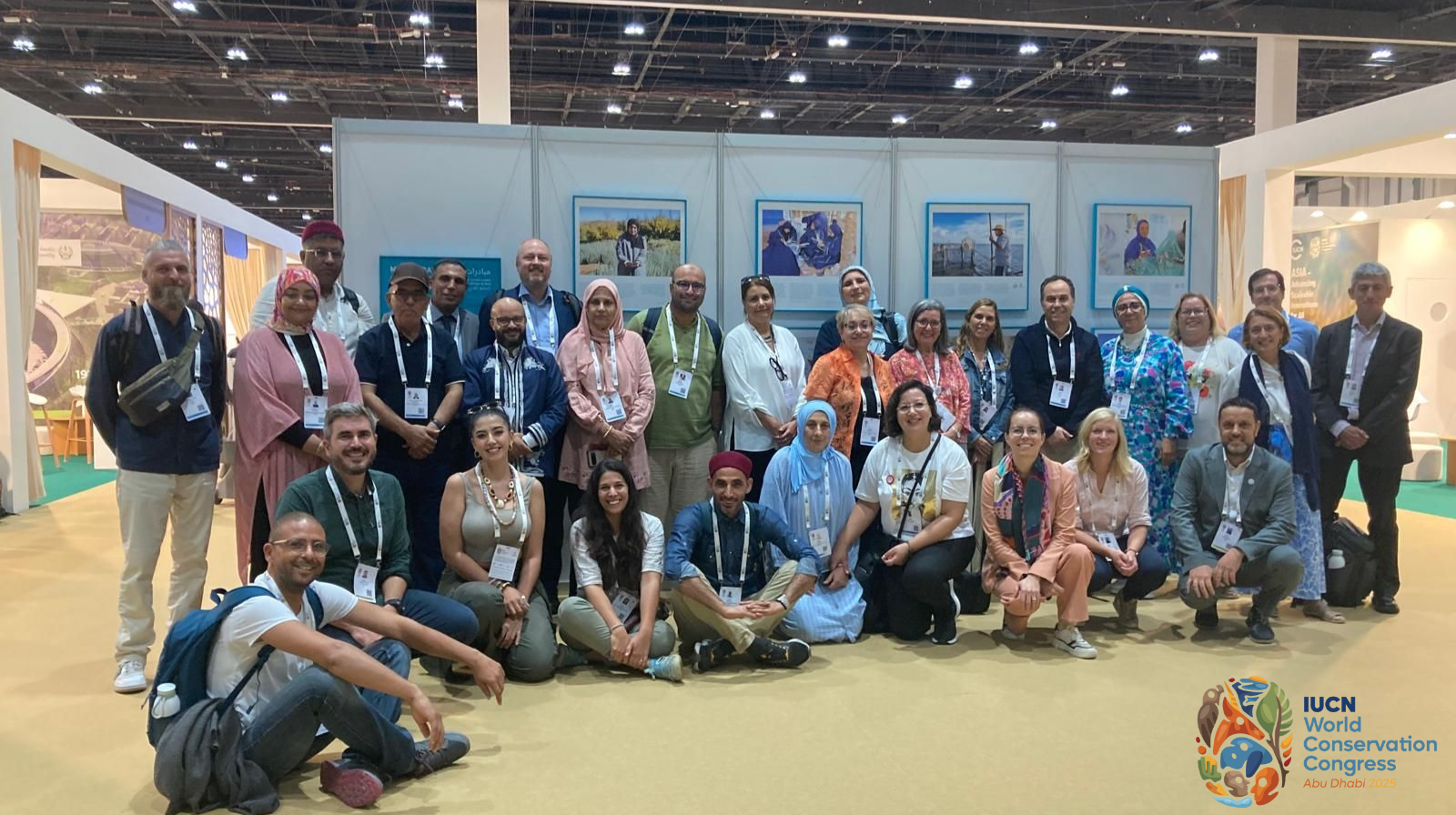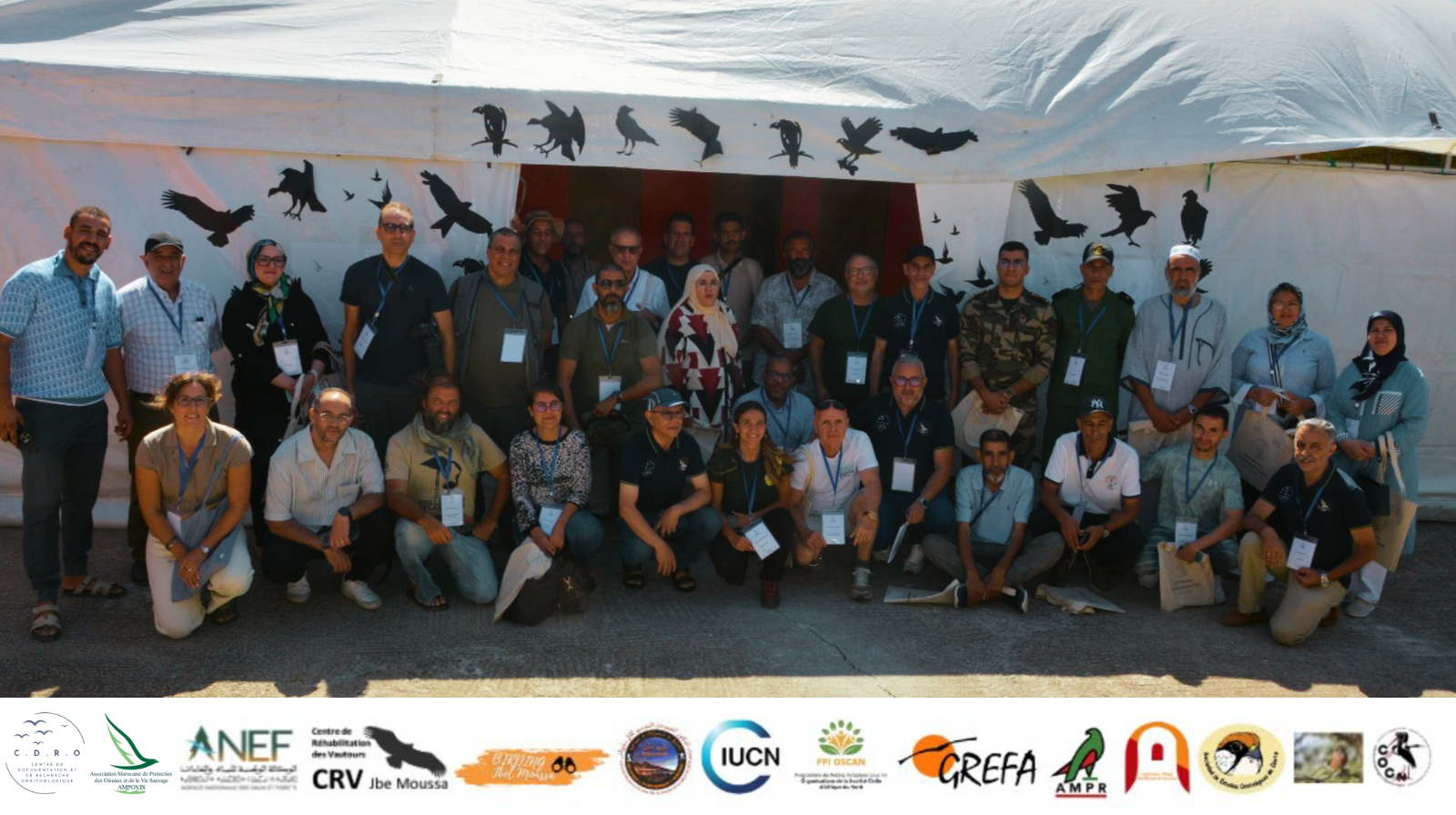Strengthening Vulture Conservation and Ecotourism in Morocco: The Impact of the PPI OSCAN Program on the Jbel Moussa SIBE
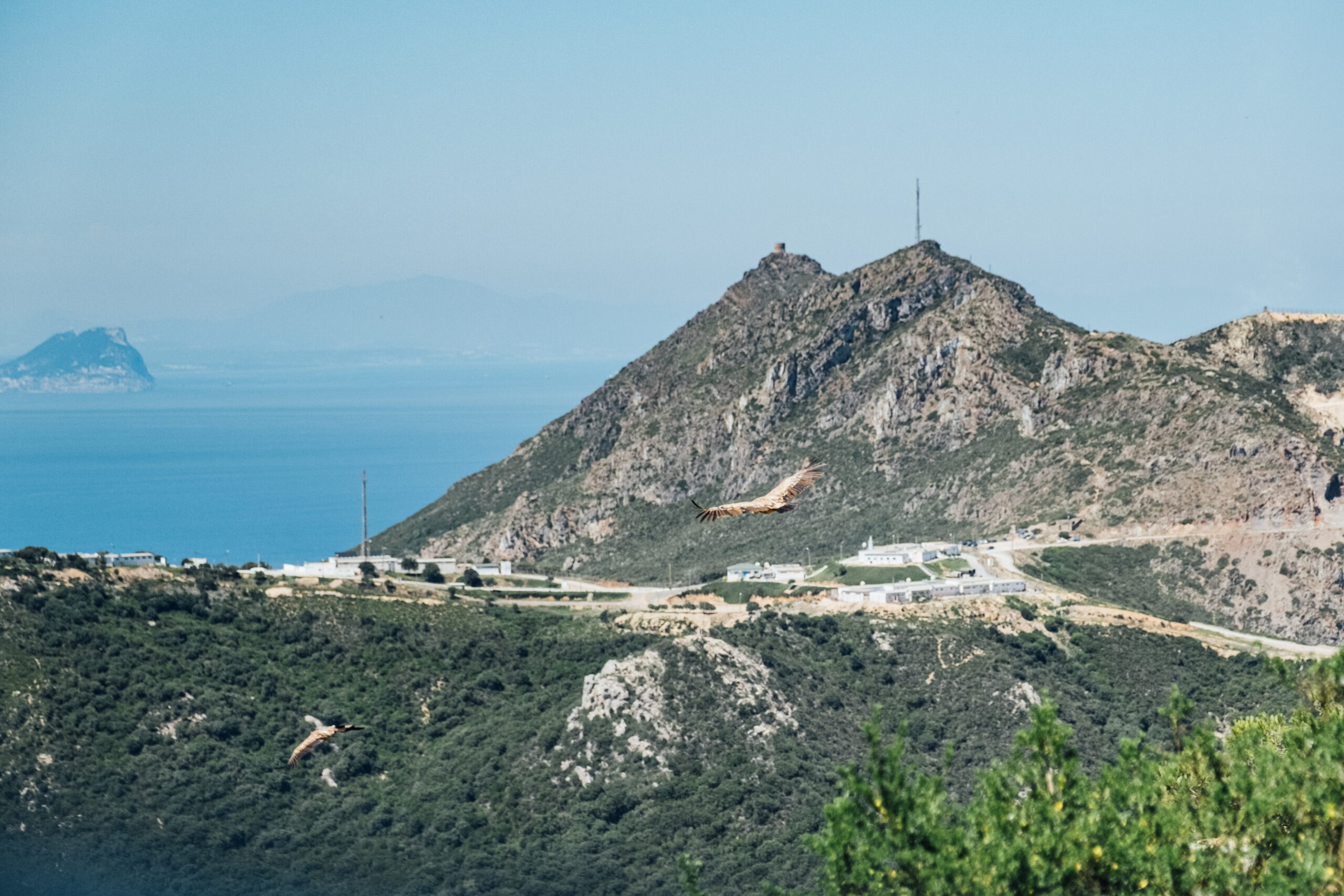
A few years ago, the SIBE of Jbel Moussa was a hidden gem in Morocco, a place rich in biodiversity but still largely unknown. Vultures, particularly the Rüppell’s Vulture, were critically endangered, with declining populations suffering from weakness and disorientation while crossing the Strait of Gibraltar, one of the most crucial migratory corridors in the world. The Moroccan Association for the Protection of Birds and Wildlife (AMPOVIS) was actively involved, but lacked sufficient resources, and the operational and communication challenges seemed difficult to overcome.
Over six years of collaboration with the IUCN Centre for Mediterranean Cooperation, through its PPI OSCAN 2 and 3 programs, the association has undergone a profound transformation. First, the establishment of a Vulture Rehabilitation Center allowed for the monitoring and protection of these threatened species, in partnership with local, national, and international collaborators. Gradually, knowledge about the threats to Rüppell’s Vultures deepened, leading to concrete actions to reduce their mortality.
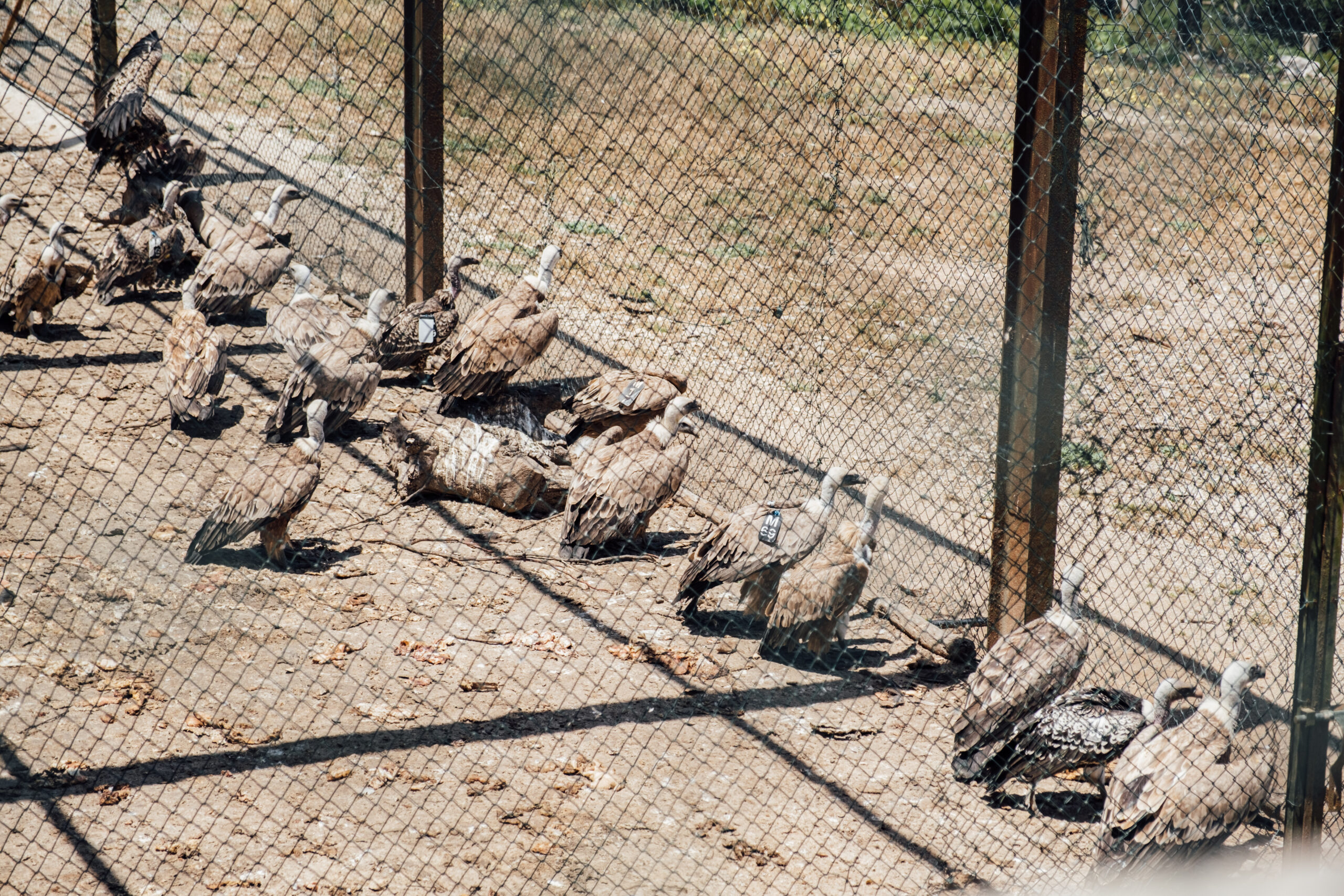
In parallel, the association has also promoted ecotourism around the SIBE of Jbel Moussa. By building raptor observation points and photographic hides, it has attracted an increasing number of visitors, from birdwatching enthusiasts to curious tourists. Today, Jbel Moussa is a must-visit destination for birdwatchers, welcoming over 200 visitors from more than ten countries to observe these iconic birds. This momentum has helped raise public awareness about the importance of conservation.
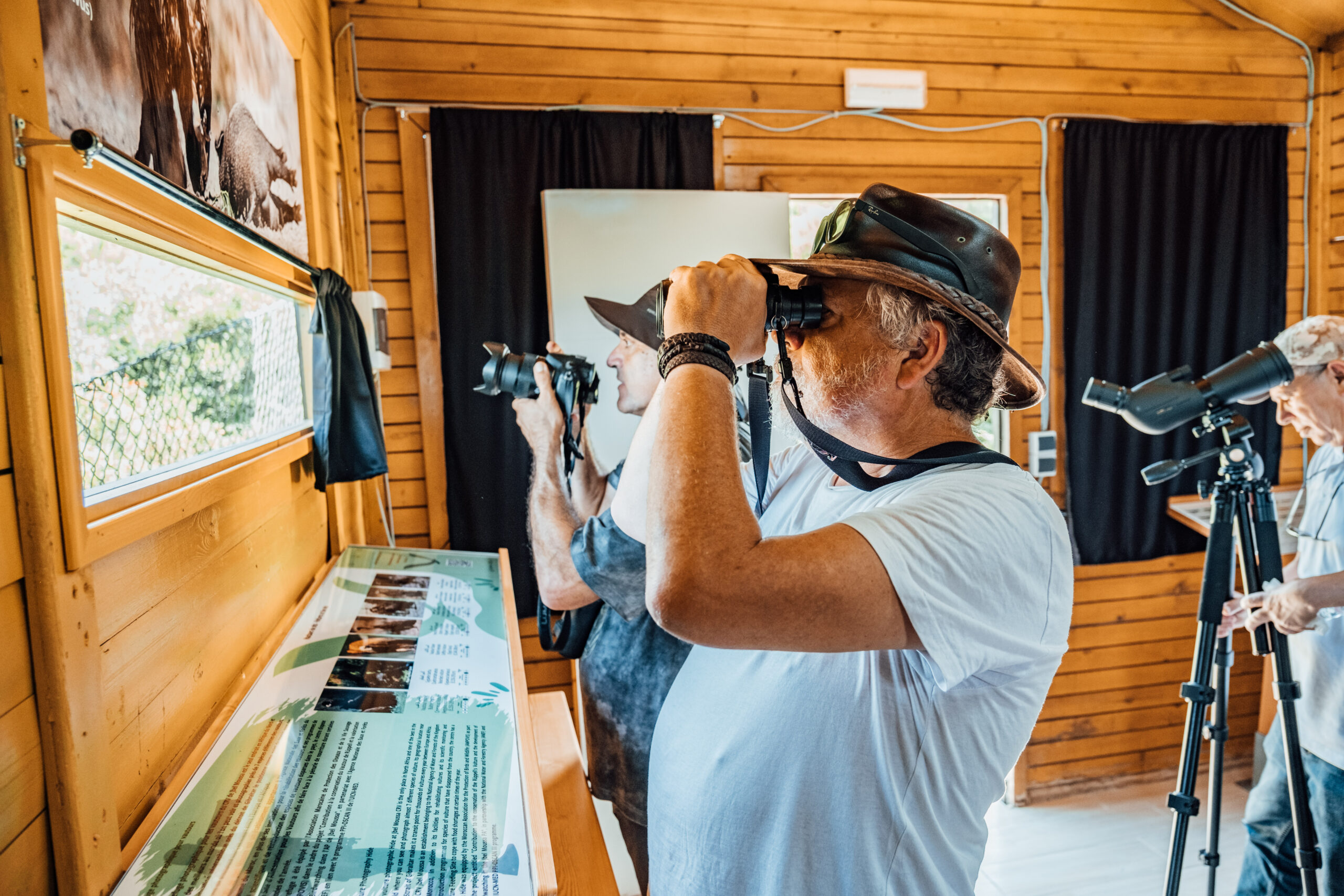
The results have been remarkable: more than 150 vultures have been tagged at the Rehabilitation Center, allowing their movements to be tracked and potential threats in the western Mediterranean and Sahel regions to be identified. Partnerships have been established with NGOs in Morocco, Tunisia, and Spain, with more in preparation with associations from Europe and West Africa.
The Vulture Rehabilitation Center is now recognized as a hub for scientific research and conservation of endangered species. Its work extends beyond Rüppell’s Vultures, opening up opportunities for other vulture species such as the African White-backed Vulture and the Egyptian Vulture. AMPOVIS aims to further strengthen collaborations, expand scientific monitoring programs, and ensure the sustainability of ongoing actions.
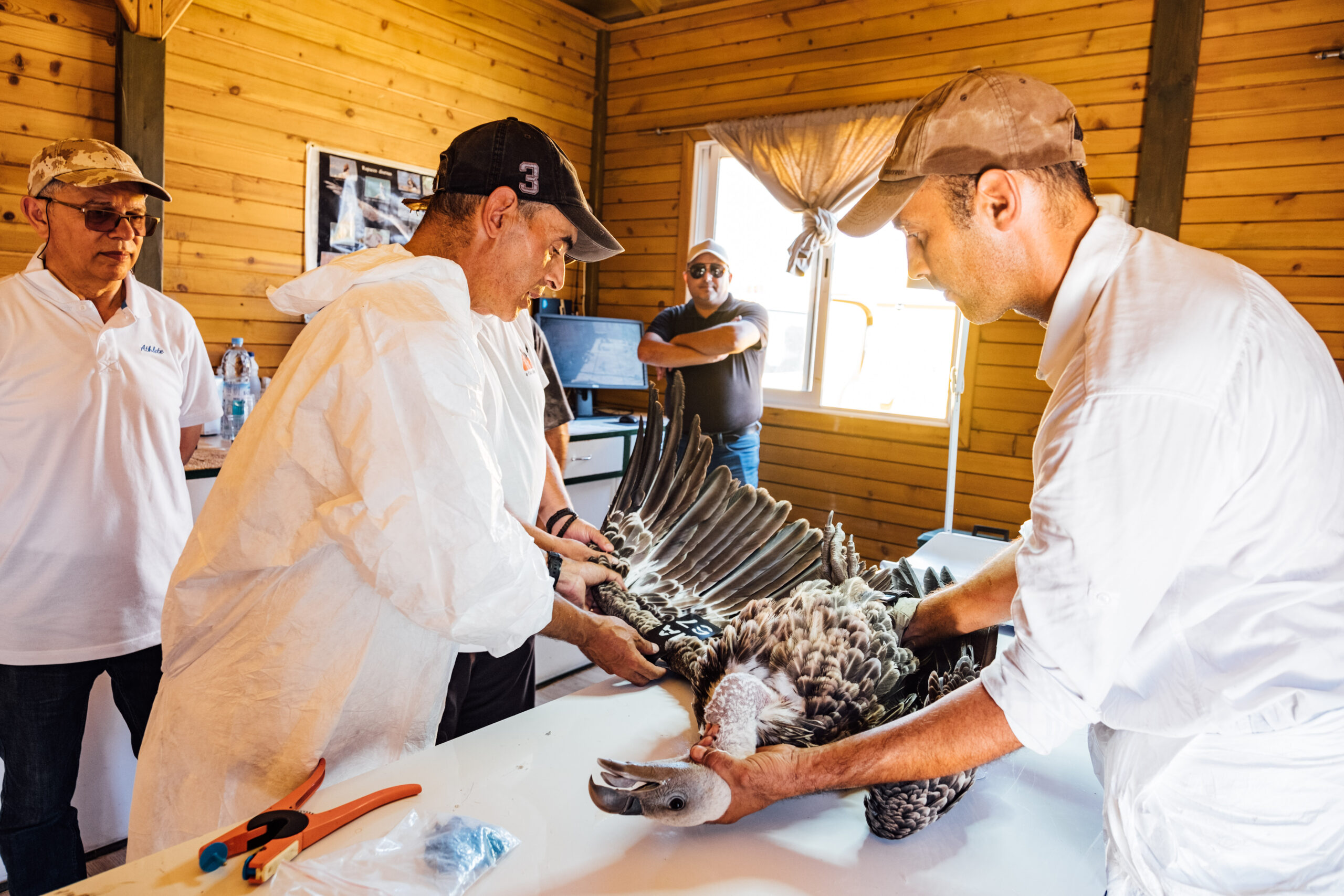
Rachid El Khamlichi, president of the association, summarized it well: “The PPI OSCAN program has had a significant impact on our organization. It has strengthened the skills of our members, opened new horizons, contributed to the conservation of threatened vultures, and supported the sustainable development of our community in the region.”
Discover more about the innovative project of AMPOVIS here: https://mubadarat-uicn.org/ampovis-association-marocaine-de-protection-des-oiseaux-et-de-la-vie-sauvage-ppi-oscan-3/.
Feel free to visit their website at http://www.ampovis-maroc.com and follow their updates on social media:
- Facebook: https://www.facebook.com/share/1CZjRMrg2S/?mibextid=LQQJ4d
- Instagram: https://www.instagram.com/association_ampovis1/profilecard/?igsh=eG1vdmZidm5sNXN2
This project is implemented under the third phase of the Small Initiatives Program for Civil Society Organizations in North Africa (PPI OSCAN), funded by the French Global Environment Facility (FFEM), the MAVA Foundation, and the Sigrid Rausing Trust. The subsidized projects aim at the conservation of species and ecosystems with remarkable biodiversity and at enhancing the benefits of conservation and sustainable livelihoods. To learn more about the PPI OSCAN 3 projects: 5. Projects – MUBADARAT (mubadarat-uicn.org)


